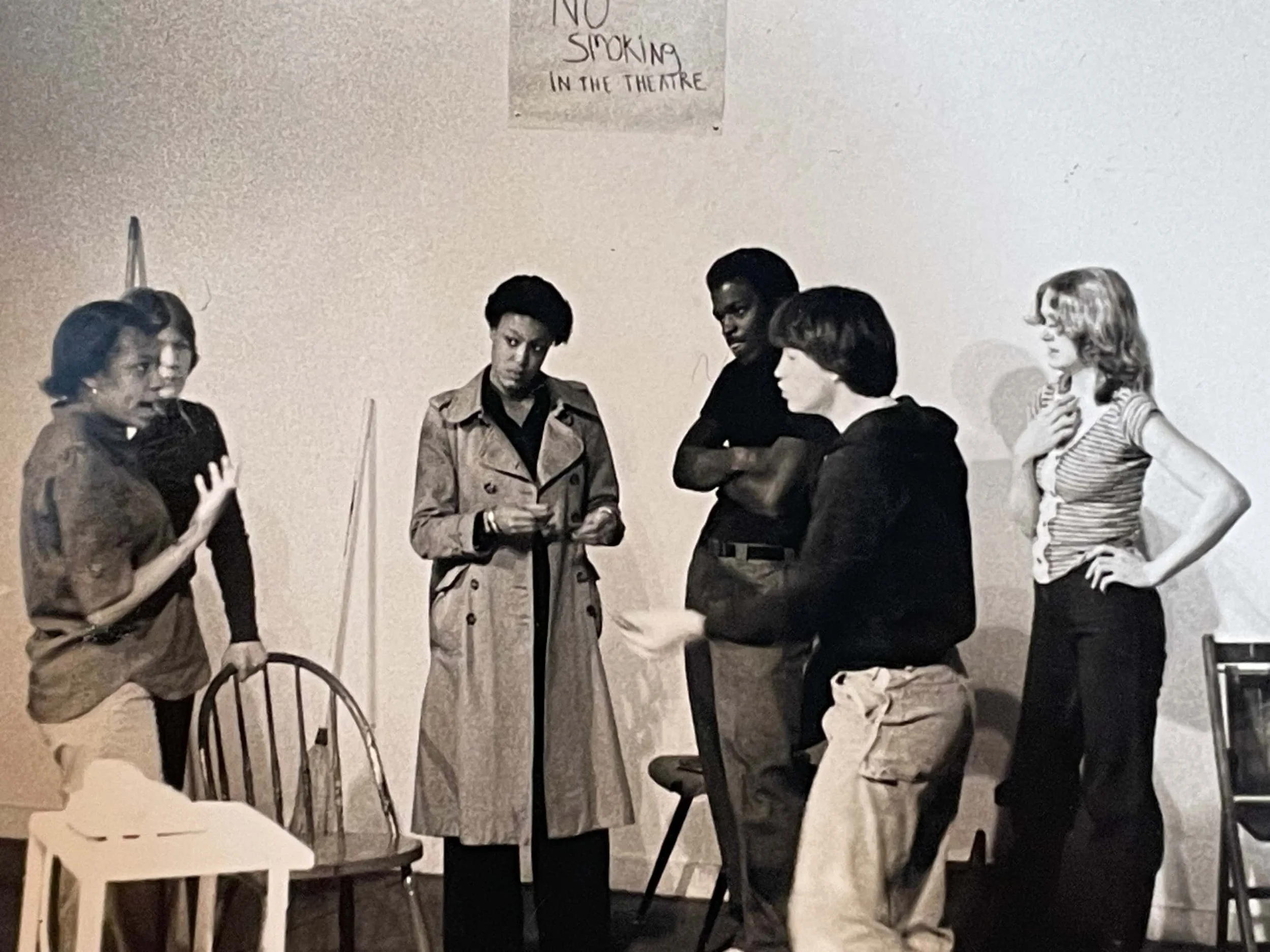THEATER Program
Plays, Plays, Plays
From its inception, The Group School (TGS) included a vibrant theater program, co-taught by two professional actors, Patty Collinge and Steve Seidel. Working class young people who had never thought of themselves as “theater kids” in their prior schools found themselves captivated by the opportunity to improvise scenes, read plays, write their own plays, and perform for their various communities — often alongside teachers and community volunteers who, like the students, were mostly new to drama.
In the mid-1970s, the school’s theater program-with support from a state grant for innovative curriculum — expanded to include student-written plays, which TGS playwrites then performed in schools and youth programs in the Boston area. Scenes from Student’s Lives includes scripts written by students with guides for teachers and youth workers who want to engage high school students with the themes of the plays and in writing their own original scripts.
In addition, in the late 1970s, the theater program collaborated with a local filmmaker on the production of a series of dramatic films featuring many TGS students and staff.
You’ll find a guide to the principles and practices that were developed for TGS theater workshops in the Resource Center titled Creating a Drama Program in a Working-Class High School.
-
Scenes From Students' Lives: Introductory Maerials
Introductory materials for the original student plays and teacher guides.
-
He Said, She Said: Script
A short play written by students about the corrosive effects of gossip and rumors on a group of teenage friends.
-
He Said, She Said: Teacher Guide
Six activities to do with students related to the themes of He Said, She Said and designed to build literacy skills, comfort with dramatic reading and writing, and to develop self-expression and interpretive skills.
-
What Do They Want From My Young Life?: Script
A short play written by students about ways in which teens get into situations that can suddenly spiral out of control, feel unfair, and/or just seem impossible to deal with.
-
What Do They Want From My Young Life?: Teacher Guide
Seven activities teachers related to the themes of What Do They Want From My Young Life? that are designed to build literacy skills, comfort with dramatic reading and writing, and to develop self-expression and interpretive skills.
-
Mix-Up and Money Blues: Preface
A short introduction to this second set of original student plays.
-
Mix-Up: Script
A family drama in which two teenage siblings go through changes as they navigate confusing and challenging work and relationship issues.
-
Mix-Up: Teacher Guide
Seven activities to do with students related to the themes of Mix-Up that are designed to build literacy skills, comfort with dramatic reading and writing, and to develop self-expression and interpretive skills.
-
Money Blues: Script
In three unrelated scenes, not having enough money creates tensions that emerge among friends in school, a family at home, and two young roommates trying to make their way in the world.
-
Money Blues: Teacher Guide
Four activities to do with students related to the themes of Money Blues that are designed to build literacy skills, comfort with dramatic reading and writing, and to practice taking ideas for plays into fully written scenes.
Dramatic Films
In the late 1970s and early 1980s, Jan Egleson, an independent filmmaker with ties to TGS, wrote and directed a series of dramatic films, roughly based on stories he heard from TGS students and their families. Building on the multi-generational nature of the school’s theater program, these films featured both TGS students and professional actors. The films were shown nationally in film festivals, through limited release in theaters, and on public television.
